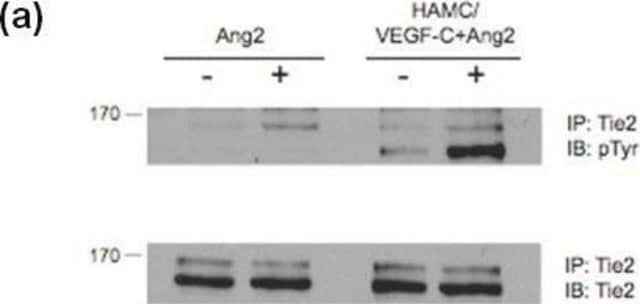16-282
Anti-Phosphotyrosine Antibody, clone 4G10®, Magnetic Bead Conjugate
clone 4G10®, from mouse
About This Item
Produits recommandés
Source biologique
mouse
Niveau de qualité
Forme d'anticorps
purified antibody
Type de produit anticorps
primary antibodies
Clone
4G10®, monoclonal
Réactivité de l'espèce (prédite par homologie)
all
Technique(s)
immunoprecipitation (IP): suitable
Isotype
IgG2bκ
Conditions d'expédition
wet ice
Modification post-traductionnelle de la cible
phosphorylation (pTyr)
Informations sur le gène
human ... PID1(55022)
Catégories apparentées
Description générale
Spécificité
Immunogène
Application
Signaling
General Post-translation Modification
Qualité
(Lane 2).
Description de la cible
Forme physique
Stockage et stabilité
Note: DO NOT FREEZE
Remarque sur l'analyse
NIH3T3 whole cell lysate stimulated with 50 ng/mL PDGF (5 minutes)
Informations légales
Clause de non-responsabilité
Vous ne trouvez pas le bon produit ?
Essayez notre Outil de sélection de produits.
Code de la classe de stockage
12 - Non Combustible Liquids
Classe de danger pour l'eau (WGK)
WGK 2
Certificats d'analyse (COA)
Recherchez un Certificats d'analyse (COA) en saisissant le numéro de lot du produit. Les numéros de lot figurent sur l'étiquette du produit après les mots "Lot" ou "Batch".
Déjà en possession de ce produit ?
Retrouvez la documentation relative aux produits que vous avez récemment achetés dans la Bibliothèque de documents.
Notre équipe de scientifiques dispose d'une expérience dans tous les secteurs de la recherche, notamment en sciences de la vie, science des matériaux, synthèse chimique, chromatographie, analyse et dans de nombreux autres domaines..
Contacter notre Service technique








